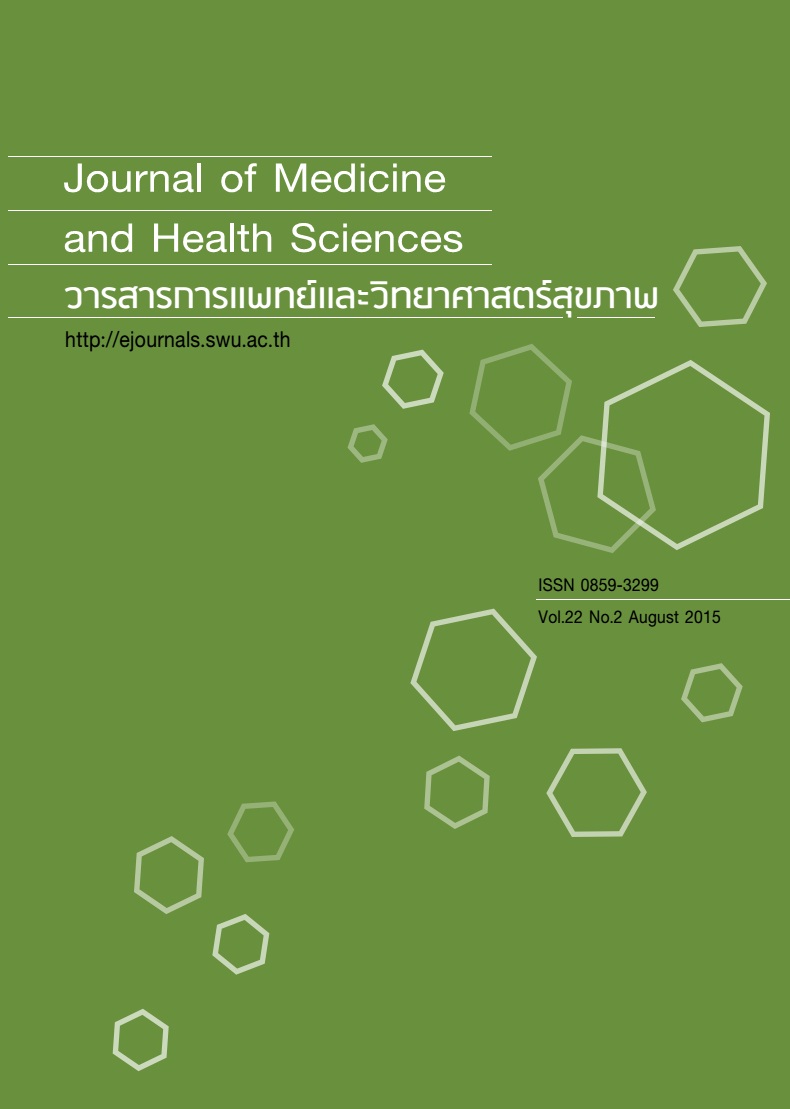Alcohol consumption and dementia prevention
Keywords:
แอลกอฮอล์, ภาวะสมองเสื่อม การป้องกัน, Alcohol, Dementia, PreventionAbstract
Alcohol leads to both negative and positive effects on the brain. An advantage of alcohol is that it may reduce the risk of the dementia. The relationship between alcohol consumption and the risk of incident dementia is however not clear. Many studies have demonstrated that alcohol consumption in mild to moderate level, compared with abstention, lowers the risk of dementia. Other studies however do not suggest such association. There are several mechanisms to describe the positive effects of alcohol consumption on the brain function. One to two drinks daily of alcoholic beverages (beer, wine, or liquor) could lower the risk of dementia. The types of alcoholic beverages are not significantly different in such association. In conclusion, it would seem that a mild to moderate level of alcohol consumption might be associated with a lower risk of dementia.
การบริโภคแอลกอฮอล์และการป้องกันภาวะสมองเสื่อม
แอลกอฮอล์มีผลต่อสมองทั้งในทางลบและทางบวกสำหรับประโยชน์ของแอลกอฮอล์มีการบริโภคแอลกอฮอล์เพื่อลด ความเสี่ยงต่อการเกิดภาวะสมองเสื่อมข้อมูลของความสัมพันธ์ระหว่างการบริโภคแอลกอฮอล์และความเสี่ยงในการเกิดภาวะ สมองเสื่อมนั้นไม่เป็นไปในทางเดียวกัน หลายการศึกษาแสดงให้เห็นถึงความเสี่ยงต่อการเกิดภาวะสมองเสื่อมที่ลดลงเมื่อบริโภค แอลกอฮอล์ในระดับน้อยถึงปานกลางเทียบกับการไม่บริโภคแอลกอฮอล์เลย อย่างไรก็ตาม บางการศึกษาไม่พบความสัมพันธ์ ดังกล่าว หลายกลไกถูกนำมาอธิบายผลกระทบในทางบวกของการบริโภคแอลกอฮอล์ต่อสมอง การดื่มเครื่องดื่มแอลกอฮอล์ ไม่ว่าจะเป็นเบียร์ไวน์หรือสุราในปริมาณหนึ่งถึงสองหน่วยต่อวันสามารถลดความเสี่ยงในการเกิดภาวะสมองเสื่อม ชนิดของ เครื่องดื่มแอลกอฮอล์ไม่มีความแตกต่างอย่างมีนัยสำคัญต่อความสัมพันธ์ดังกล่าว โดยสรุปการบริโภคแอลกอฮอล์ในปริมาณ หนึ่งถึงสองหน่วยต่อวันอาจสัมพันธ์กับความเสี่ยงในการเกิดภาวะสมองเสื่อมที่ลดลง



